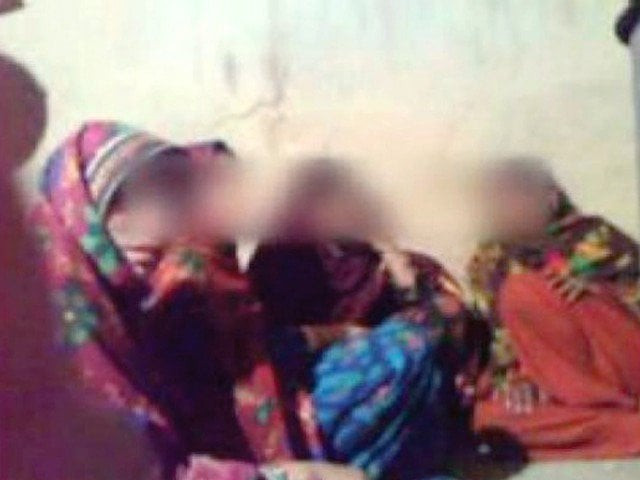Justice delayed in Kohistan
The mere condemnation by tribal elders for something as innocuous as clapping and dancing is condemnable on its own.

A jirga in Kohistan district of Khyber-Pakhtunkhwa had condemned five women as well as two men, to death, for singing and dancing at a wedding held in March 2012. PHOTO: FILE
The Supreme Court had taken suo-motu notice of the matter in 2012 and sent a fact-finding mission to the area, which found that the women were alive. The case was then dismissed. But earlier this year, it came to light that the jirga may have presented similar-looking women to the commission, which misled authorities into believing that the women were alive. Later, the two men featured in the clip and their brother were killed in an armed assault. This video scandal has come up again this week after a former parliamentarian disclosed that the women had been killed in May 2012. He also accused a politician belonging to his own party of having tried to hush up the matter for tribal politics.
Unfortunately, despite these very grave allegations, an inquiry has yet to be launched into the matter and the government has yet to recover from its continuing slumber. Two years is long enough for this matter to have been settled and the authorities must now immediately launch an impartial inquiry before more people are killed for harmless acts conducted in a private sphere. The mere condemnation by tribal elders for something as innocuous as clapping and dancing is condemnable on its own. This incident, once again, highlights the need for a uniform law in the district as well as in the entire province, which is administered by three different legal systems. In the absence of uniform and sustained rule of law, there is too much room for criminal exploitation.
Published in The Express Tribune, February 14th, 2014.
Like Opinion & Editorial on Facebook, follow @ETOpEd on Twitter to receive all updates on all our daily pieces.















COMMENTS
Comments are moderated and generally will be posted if they are on-topic and not abusive.
For more information, please see our Comments FAQ